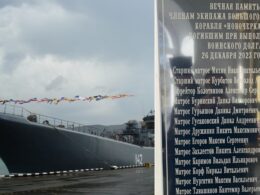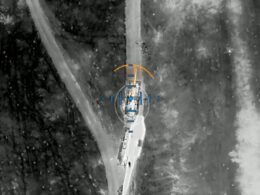According to a report by the US-based Center for Strategic and International Studies (CSIS), Russian military losses, including tanks, trucks, artillery pieces, and drones, have led to a decline in its military capability. The report notes that Western sanctions have caused shortages of high-quality foreign components, which has forced Moscow to use lower-quality alternatives.
While the quality of the military equipment used by the Ukrainian army continues to improve thanks to Western aid, the quality of Russia’s weapons continues to degrade. However, Russia can still rely on prewar stockpiles of older equipment and a web of illicit supply chains to sustain its military power.
Despite the decline in the quality of Russian military equipment, the CSIS report warns that Moscow still retains enough firepower to extend the war in Ukraine. Russia can still compensate for the loss of modern technology with a large inventory of older weapons and equipment. The report also notes that Russia’s prewar stockpiles and illicit supply chains provide it with significant adaptability to Western sanctions. However, the report cautions that Ukraine and its Western supporters should not expect sanctions to stop hostilities quickly.
The report concludes that considering these limitations, Russia will opt for a slower-paced attritional campaign in Ukraine, putting pressure on Kyiv and its Western partners but further stressing its military and industrial base already stretched thin by sanctions and the last 12 months of the invasion. The international efforts to prevent the Russian military from accessing the key items will become even more important as the war enters its second year. The Russian military shows no signs of abandoning its major goal of occupying Ukraine.
The report recommends several ways for Western policymakers to close the loopholes actively used by the Russian government, including:
- Continue supplying Ukraine with higher-end military equipment at a pace that exceeds Russia’s production rate, making it harder for Russia to maintain an attritional war.
- Identify and target illicit networks, and particularly individuals involved in current sanctions-evasion efforts. The United States should use its leverage in the post-Soviet region more proactively, including in Armenia, Georgia, and Kazakhstan.
- Restrict any existing transactions with Russian and Russia-linked defense companies and their affiliates. For example, Rostec subsidiaries and affiliated companies involved in civil aviation should be prevented from importing and sending sanctioned dual-use technologies to other Rostec affiliates involved in producing different weapons systems.
- Eliminate the loopholes that allow some Western companies to import equipment into Russia by extending past contracts that preceded the imposition of sanctions.
- Work toward creating an OFAC equivalent at the EU level to monitor the implementation and compliance of the sanctions. OFAC is the US Department of the Treasury’s Office of Foreign Assets Control.
Read also:
- Russia lost over 10,000 vehicles and pieces of heavy weaponry in Ukraine, Oryx says
- Ukraine delays counteroffensive due to slow equipment delivery and ammo shortage – Washington Post
- Russia’s losses in Ukraine dwarf those of past conflicts, analyst finds
- Russia’s equipment, manpower reserves needed to sustain offensive “significantly depleted” – ISW
- Russia’s 10th Tank Regiment likely lost large proportion of tanks near Avdiivka – British intel
- Russia likely increased its armored assaults around Donetsk’s Mariinka – UK intel







